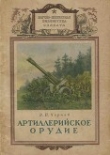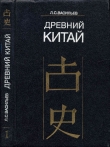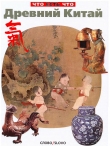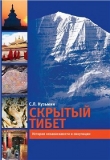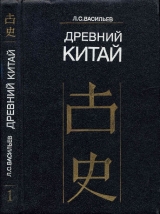
Текст книги "Древний Китай. Том 3: Период Чжаньго (V—III вв. до н.э.)"
Автор книги: Леонид Васильев
Жанр:
История
сообщить о нарушении
Текущая страница: 58 (всего у книги 58 страниц)
Among other things, Hsiun-tzu concocted a story of a certain shao-cheng Mao who allegedly corrupted the minds of the youth of Lu with forbidden speeches, for which he was executed by Confucius' orders. However, it is known that Confucius never possessed political power. Besides, he would have never dreamed of killing anyone for wrong words. Finally, no texts of Confucius' time mention a shao-cheng called Mao. Hsiun-tzu knew all this better than anyone. So what was the matter? The answer is very simple. Hsiun-tzu wanted the Great Master to take a stick in his hands. This was necessary for imparting a certain strictness to the doctrine, without which it would not succeed. And Hsiun-tzu did the necessary thing, without which the doctrine of the Great Master would be unable to develop and spread in the late Chou society. By doing this, though, he took a step in Shang Yang's direction. It is small wonder that his two best disciples, in whom any sage could feel great pride, the theoretician Han Fei-tzu and the prime minister of the emperor Ch'in Shih-Huangti Li Ssu (he was the actual author of the strictly ordered structure of the Ch'in Empire) turned out to be Legists.
Hsiun-tzu's little trick saved Confucianism as a doctrine suitable for ruling the state; furthermore, it ensured (in combination with historical developments that, too, played a major part in this) its lasting success for more than two thousand years. And still, despite this great service to the doctrine, to which he (unlike his disciples) kept a lifelong loyalty, Hsiun-tzu dearly paid for having distorted the essence of the Master's image. His work, unlike the above-mentioned Meng-tzu, was never included into the Confucian canon.
Beside Hsiun-tzu, there were other Confucians who worked to adjust the doctrine to the political realities. By the end of the Chou period, they compiled two systematically arranged texts deserving attention. The first of those, Yili (Regulations and Rites), was dedicated to clearly embellished nostalgic reminiscences of the past, when the aristocrats allegedly adhered to the norms of rites and ceremonies and followed traditional customs. All the norms and ceremonies in question were painstakingly collected and described in the work to the minutest detail. On the whole, this text is to be regarded as a reminder of the lost past, written with the aim of extolling it, thereby enhancing the role of the tradition-defending Confucianism. The second work, Chouli (Rites of Chou, or Prescriptions of Chou), is an artificial reconstruction of the ideal imperial administrative system, which – though sung by tradition – never existed. The text enumerates ministries that consisted of numerous departments and offices full of innumerable bureaucrats and clerks, each of which is named by his office, with the sphere of his duties precisely delineated. However, these texts, which appeared too late, never played any significant part.
Having defeated his rivals, the last ruler of the Ch'in state unified the Un-der-Heaven in 221 B.C. and founded the first real empire of Chinese history, not a fancy of mythical tradition or Utopian reconstructions. That empire was created on the basis of a state that in many respects differed from most other states, in which the people honored age-old tradition revived and strengthened by Confucius in his day. Although in the time of Meng-tzu (and doubly so, of Hsiun-tzu), i.e., during the late Chou, the situation was quickly changing and many of Legist methods were already accepted in different states, in practice this borrowing lead to a combination of the two systems rather than to one replacing the other. No one dared to scorn tradition openly. And no one was able to do so even if he wished to. In a word, most of the empire was not ready to accept that severe anti-Confucian Legism, which was created in Ch'in by Shang Yang and continued to exist there.
However, this perturbed neither Ch'in Shih-Huang nor his prime minister Li Ssu. They were accustomed to use the stick and believed in its absolute power. Much was accomplished with the Legist stick for the brief 13 or 14 years of the Ch'in Empire's existence. The whole country was anew divided into 36 provinces headed by governors. When the question of supplying officials' relatives with landed estates arose (the normal practice of the early Chou), Li Ssu promptly reacted with a harsh denial. He realized all too well that this would have led to the emergence of destructive tendencies. Provinces were further subdivided into commanderies, prefectures, districts and other smaller administrative units. The heads of the six central ministries (military, judicial, financial, ceremonial, and of the court and of the emperor's protection), the officials of the all-powerful censorship branch as well as the local authorities held administrative ranks corresponding to their offices. The emperor ordered the populace of the states that warred against him to hand over all weapons and forcibly resettled about 120,000 rich and noble families from all over the empire to his capital in order to cut the ties between the aristocrats of the former states and their quondam subjects. All previously effective laws were repealed and supplanted with those of Shang Yang, which involved severe punishments for petty offences. The emperor standardized the measurements of length and weight and the writing system, which remains basically the same to this day. The administrative apparatus, including military units which constituted part of it, was strictly controlled and operated under double subordination (to local officials and to central ministry at the capital).
All peasants were provided with land, taxes and labor obligations were initially moderate, crafts and trade were given some leeway for development, the richest of merchants and craftsmen received the right to act as tax-farmers, thereby making the task of organizing the production of iron and wine and the extraction of salt easier for the state. The latter controlled prices of principal commodities – first of all, grain. A network of state-controlled enterprises and workshops was established, at which the best craftsmen were obliged to work for a term of time to fill the needs of the treasury and warehouses of the state. Peasants, as part of their corvee duty, and sometimes enslaved criminals, i.e., convicts, were employed in road construction – a sphere that enjoyed special attention of the emperor, – at mines, at the building of the new capital and the emperor's enormous tomb. Millions of peasants and convicts were mobilized for the construction of the Great Wall, which was completed in the shortest possible time and cost several hundred thousand lives.
On the whole, the rigid Legist system demonstrated great efficiency as regards economic matters. The unconditional Order, constantly upheld by the iron hand of the state, ruled the country. But – alas! – there was no Harmony, which the Confucians yearned for. Being unaccustomed to a life of daily hard work, the people sorely complained. Many malcontents, especially Confucians, protested openly, accusing the emperor of inhumanity. In 213 B.C., Ch'in Shih-Huangti reacted by ordering all ancient books burned (except those on such utilitari л subjects as medicine or mathematics). He also executed by burying alive 460 of his most ardent opponents. This inflamed the subjects to greater hatred toward the tyrant. Attempts on his life forced him to spend each night at a different palace. As if trying to justify his actions, the emperor took to setting up stone stelae with inscriptions, in which he «personally» addressed the people and, using the time-honored Confucian phraseology, tried to convince them that he acted for their own good. This hardly helped, however. China was on the brink of a crisis when, in 210 B.C., the emperor died suddenly during one of his tours.
The sudden death of the tyrant provoked a wave of insurrections. Neither the weak successor nor the top officials of the empire (Li Ssu and the eunuch Chao Kao) were able to control the situation that grew more and more complicated. They all shortly perished. In 207 B.C., the empire collapsed. Leaders of various military units started a civil war, which was finally won by a peasant leader called Liu Pang who became the founder of the new Han dynasty (202 B.C. – 220 A.D.). Liu Pang had the intelligence to realize that Order without Harmony degenerated into extreme and arbitrary rule and was doomed. Therefore he pursued a different policy. All severe practices of the former empire, especially punishments, were abolished. A general amnesty was granted in China. Each peasant who managed to survive the protracted blood bath was given a plot of land. Taxes became moderate once again and corvee became less exacting. For all that, Liu Pang preserved the basis of the Ch'in administrative apparatus, especially on lower and medium levels, while restricting its functions. His successors, notably Wen-ti (179–157 B.C.) and Wu-ti (140-87 B.C.), took further steps toward Confucianism and the much sought-after Harmony.
The Confucians, who at long last came to power, produced a favorable impression. They judiciously accepted those necessary methods of government which had been introduced by the Legists and which justified themselves. To these, they added everything that the Master once taught. This resulted in changes in «the rulers-the ruled» relationship. The process of a fruitful synthesis of Confucianism and Legism found its reflection in the official imperial Confucianism, which was introduced by Tung Chung-shu, the forth great Confucian of Chinese antiquity. That was an eclectic synthesis that absorbed everything valuable and beneficial to the land and the people from the legacy of the Chou sages. This variety of Confucianism exists in an almost unchanged form for more than two thousand years; and it is largely to it that the modern Chinese-Confucian world owes its achievements. At the turn of our era, the most exhaustive compendium of Confucianism – the systematized treatise Lichi– was created. Everything that Confucius taught, everything that constitutes the essence of the doctrine was collected and thoroughly described in it. By this time, Confucianism started performing the function of the dominant religion in a country that previously had no developed religious system.
Speaking of the foundations of the Chinese civilization, which were laid down in antiquity and continued to determine the norms of behavior of Chinese society and state to this day, one must pay attention to Chinese mentality and worldview. In other words, we mean the way the Chinese look upon certain things and the difference between their outlook and that of other peoples, primarily Europeans (or, more broadly, Westerners). Without going into detail, we offer here the main points:
First, what leaps to the eye immediately is the practical nature of thought resulting from many centuries of earthly orientation of the Chinese world outlook. Originally, the Chinese were not familiar with religion in any developed form, but they always revered Social Order and highly esteemed Harmony that was associated with it. Accordingly, they saw the ultimate goal of human existence in providing the well-being of ordinary people (which was the raison d'etre of the state), not in the extinguishing of nirvana or in the retreat of paradise. This is the welfare of the living and, naturally, of the deceased.
Second, they revered the authority of the sages of antiquity, who laid down the principles of Social Order and Universal Harmony. They also highly regarded those intelligent and capable, who are able to maintain that order and are therefore worthy to be promoted to the elite (subsequently, a system of competitive exams became the main tool for such promotion).
Third, this is the idea of natural equality of men. Widely accepted since Confucius' time, it became one of his greatest contributions. Chinese hierarchy is a function of that equality. One's worth on the whole corresponds to one's abilities; the more capable is man, the more fully he must exercise his abilities. This idea originates from the notion of Mandate of Heaven (t'ien-ming), from the practice of promoting the intelligent and the capable, though it was Confucius who applied this idea to all people.
Fourth, this is the cult of conservative stability and the readiness, for its sake, to reinterpret the past in accordance with the needs of today. Norm, ritual, ceremonies and seeing the past the way it is supposed to have been safeguard stability. Hence numerous texts full of interpolations and, sometimes, transparent falsifications.
Fifth, the Chinese always strive to measure up to a certain paragon and engage in unflagging pursuit of excellence. The main incentive here is not material gain (though well-being is valued and always follows success) but duty. This is duty to yourself, to your family, to everyone who expects something of you. Work with diligence, if you can, do not be a sluggard, achieve, compete!
Sixth, they have a penchant for mental associations, respecting – nay, worshiping the past, precedent and the word-sign that symbolizes it. This derives from the reverence for antiquity and ensures the above-mentioned inclination to stability. Hence the markedly correlative mentality.
Seventh, they can absorb foreign influences masterfully transforming and reinterpreting them. This mental property is extremely useful, for it enables them to enrich their mind with extraneous ideas without having to sacrifice anything of value in their own legacy. To tell the truth, it has more of vulgar eclecticism than of high-level synthesis. So what? It is the result that matters.
Eighth, they tend to construct classificatory schemata, to systematize ideas and typical situations, to engage in didactical hyperbole. These are all links of the same chain conducive to the training of the mind and to the perfection of thinking. The value of such constant training is indisputable.
Ninth and last (of course many things remain untold but we must keep ourselves within reasonable limits): in China, they most definitely follow their mind, not their heart (i.e., emotions). The ninth item of our list has much to do with the first one, it is another reminder of the fact that the priority of rational thinking is beyond question. Emotions, while they cause no problems for anyone (including the person who experiences them), have a right to exist – they normally find an expression ill literature, art, etc. However, as soon as they begin to contradict the dictates of the mind (which is interpreted very widely, ranging from the wishes of your elders and betters to the necessity to do your duty), they have to make way for reason. You have to subdue them. Any Chinese is accustomed to this. Chinese history, as far as we can judge, knows no instances of suicide on account of the conflict between reason and emotions.
Карта. Китай в период Чжаньго (ок. 350 г. до н. э.)





